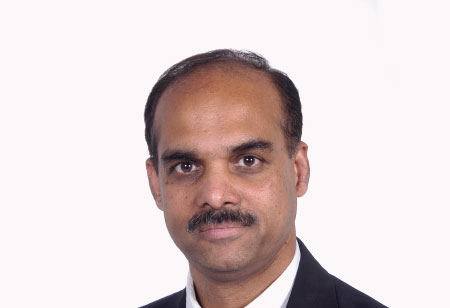Art of Managing Projects
By Rajesh Sivan, Head of Projects,
Fortis Healthcare

Rajesh Sivan, Head of Projects, Fortis Healthcare
The term Project Management in India was once perceived as body shopping which essentially meant to provide the required resources for the project from time to time to manage the construction cycle. It was seldom seen as the science and art of sequencing all activities like planning, design, execution monitoring and the final product.
However, with India in the development road map core importance has been given to this art especially keeping in view to adopt the global best practices in project delivery. Though our Project Management track record has been a mixed bag of successful projects and projects that have undergone cost and time delays, we need to build up our success stories and improve upon them. The search for increased productivity and maximizing the efficiency has been constant over the years, and it is likely to gain further as new methodologies and technologies challenge the old and traditional ones. This will eventually mean that project managers have to acquire new, updated skills from time to time to keep up with the rest of the world.
Though in setting up an enterprise, quality, cost and time play the three key parameters, saving on time is direct saving on the cost. This can be achieved only by implementing a robust process in managing the projects from design to the finished product on time. Whether be it an IT - ITES, an automobile or a real estate these parameters are common. The process and the program management is the key. As far as the construction industry is concerned the challenges and problems faced are global. Shortages of resources, socio-economic stress are some of them.
Data shows that in India, the real estate is the second largest employer after agriculture and is envisaged to grow at a pace of 30 per cent over the next decade i.e, until 2025. In absolute terms by 2020 the market size would touch US$ 180 bln. With such a growth and coupled with the Government initiatives to encourage development in the sector it is evident that the industry needs to be poised with adequate resources both in terms of manpower and materials. Not only this but also to ensure that the growth is well managed and is sustainable. This is where the Project Management Office would play a key role in a fast developing country like India.
It is envisaged that 2025, construction industry would require between 4.6 – 5.2 million professional which is around four times of existing available professionals and many of the fast track projects in India are suffering due to the dearth in competent and experienced project managers. One of the primary reasons for this could be the lack of institutions, which render courses on Project Management in India. As per one of the reports published in 2010 India had less than 10 universities for courses in Project Management as against more than 100 in China during the same time.
As we move forward to launch the initiatives of ‘Make in India’ it is more critical to build the project management capabilities. Project management office (PMO) professionals are the key people who can help business align with this vision and they have a pivotal role in ensuring business objectives are successfully met. One of the most significant problems businesses have in implementing project management initiatives is the breakdown between the corporate strategy and the project teams. It can no longer be the old saying ‘It will be done when it’s done’. To have a successful alignment between the corporate and project team some of the key levers that can help create successful projects are:
Tracking of the Key Variables
The team must keep a close watch not just on milestones but also on factors that have a direct impact on the business. Other than the productivity one also must track materials costs, change orders and the contractor’s progress. Trouble in any of these areas can throw a project out of control and it’s important to track them on a weekly basis.
Keep your stakeholders informed
With MIS and data in place on regular intervals, potential trouble spots surface quickly. PMO has to bring out the issue to the attention of all their internal team and the stakeholders.
The Five Focus Points
While there is a continuous effort to improve the project management practices there should be a lens on the five focus points i,e, leadership focus, process focus, strategy focus, people focus and learning focus.
What is required at the moment is to create a ‘skilled ecosystem’ with partnerships between industry players, training organizations and the government to ensure mutual support and enhancement of collective benefits.
So by having proper stakeholder engagement and imparting formal training on project management most of the projects in India will have a success story to say. With a diverse country like ours where there is an immense potential bringing together the technocrats and professionals, it’s just a matter of time when the art of managing projects would be something that we as a country would be proud of.




